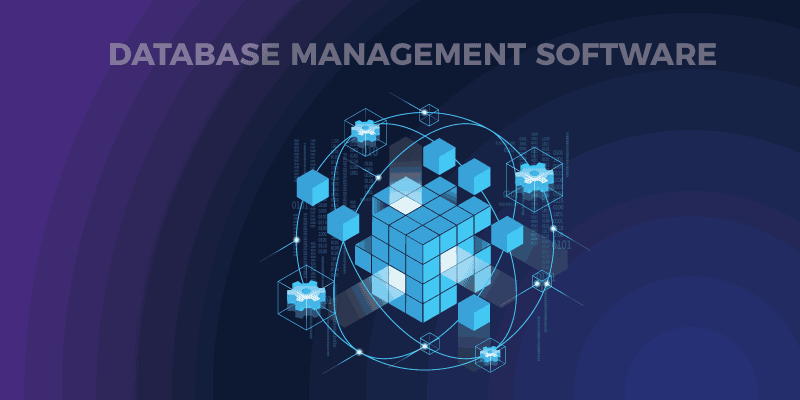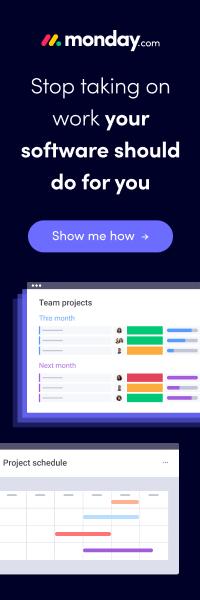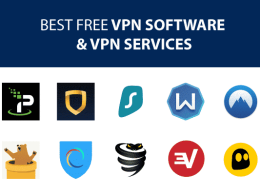Are you looking for the best database management software?
Database management systems allow businesses to store data in an organized manner. These data stored in tables can be accessed by applications or programs. Databases are essential tools for businesses, especially those dealing with large amounts of data.
Database Management Software (DBMS) is used by businesses to systematically save information. It allows businesses to easily access the data and make decisions based on what the data suggests.
The right software can make managing databases much easier. We’ve compiled a list of the best database management software available today.
1. Microsoft Access
Microsoft Access is used to create databases for small businesses. It is a great tool for storing information about customers, inventory, employees, and much more. It is particularly useful for companies that have a lot of data to store.
Microsoft Access is a powerful tool that enables users to create databases and manage them efficiently. Its features include data entry, reports, queries, forms, macros, and security.
Large corporations always require custom database management solutions for their business. This helps scalability and efficiency in data management. Businesses like MSTechnology provide custom solutions for the database management system.
2. Claris
Claris is a database management software used for small business owners. It is designed to make managing files easier than ever before. It is a powerful program that makes it easy to manage customer records, employee information, and much more.
If you are looking for an easy-to-use database solution, Claris might be the perfect choice for you. It’s compatible with other programs such as PowerPoint, Word, Excel, and more. Plus, it gives you an easy-to-work interface for managing your database.
Claris offers a user-friendly interface. It works with most operating systems available today on the market. It is an excellent option for small companies who want to build their own custom database.
3. MySQL Workbench
There are two main options when choosing between Claris and MySQL Workbench for a custom database solution. MySQL is a free solution, while FileMaker Pro will cost you $19 a month. Both offer similar features, so the decision comes down to what you need out of your database.
MySQL Workbench is an open-source application that allows users to manage databases using SQL commands. It has a graphical user interface (GUI) and supports multiple platforms such as Windows, Linux, Mac OS X, and Android.
MySQL Workbench is a proprietary application created by Oracle. It is used to store and retrieve data from a variety of sources. It includes features such as forms, queries, tables, charts, and macros.
4. MySQL
MySQL is one of the most popular and most used database management software on the market. It works well for those looking to build websites and online stores. MySQL is free to use and open source so that you can use and customize it according to your needs.
MySQL supports many programming languages and was developed by programmers to make the process of developing web apps simpler. Websites and online retailers frequently utilize it.
5. OpenOffice Base
OpenOffice Base is a database management software specifically created for small businesses. It comes with many features, including spreadsheets, word processing, presentations, and even forms. It is a great program for any company looking to organize their data.
OpenOffice Base is a database management software package that works with Microsoft Access. It is a straightforward yet effective tool that makes information organization simple. It includes tools for data entry, reports, forms, macros, queries, and security.
6. TeamDesk
TeamDesk is an open-source project that runs on top of MySQL. It provides a web-based interface with features such as user administration, file storage, email integration, and more.
If you need to access data stored in a relational database, you will probably use a database management system (DBMS). You can input, edit, and query data that is saved in a database using TeamDesk. They also provide tools for creating new databases and managing them to significantly improve project management productivity.
7. Oracle
If you run a business with more than one employee, you need to consider using an enterprise-level database management system. These systems are designed specifically for large organizations and offer features such as security, backup, and reporting tools. They also come at a price tag that makes them out of reach for smaller companies.
If you need a DBMS product with full support, then you should consider using Oracle. It has been around for decades and is widely used in business environments. However, it does not offer any form of licensing, so you will need to purchase a license for every user who needs access to the system.
8. IBM Db2
IBM Db2 is a database system for relational and non-relational structures. IMB and Oracle offer similar features such as data warehousing, online analytical processing (OLAP), and relational databases. However, in terms of pricing, Oracle offers a better deal. It costs $1,000 less per year than IBM Db2.
Open source DBMS products are free to download and use, but they lack some of the advanced functionality found in other DBMS products. Commercial DBMS products are typically licensed by companies and sold as part of an enterprise solution. Proprietary DBMS products are developed by a company and sold directly to customers.
9. Microsoft SQL Server
Oracle and Microsoft SQL Server (MSS), both products offer similar functionality. However, in terms of features, there are some major differences. One of the biggest differences is that Oracle offers more advanced features than Microsoft SQL Server.
This means that if you’re looking to use a database that will allow you to perform complex queries, then Oracle is probably the better choice. On the other hand, if you just need something simple to store and retrieve data, then Microsoft SQL Server is likely the better option.
10. CentriQS
If you’re looking for an easy-to-use product with a low price tag, then CentriQS might be right up your alley. This is another product that has been designed specifically for small business owners who need a simple solution to store and manage their data. CentriQS comes with a complete package to get you up and running with little effort.
In addition to being free, open-source, and cross-platform, there are other reasons why you might prefer an open-source solution over proprietary alternatives. One reason is that open source solutions tend to be easier to customize than commercial products. Another reason is that open source databases often come with better performance than commercial products.
11. PostgreSQL
If you’re looking for a database solution that allows you to easily manage large amounts of data, PostgreSQL is the right choice for you. Because of its scalability and efficiency, it is an excellent choice for storing a large amount of data. Additionally, it allows many databases inside a single instance, making setup and maintenance easy.
PostgreSQL is a free database management system. It’s open-source, so there’s no cost involved. However, it has some limitations; you won’t be able to use it with Microsoft Access, Excel, or other programs that require direct access to databases.
12. Knack
Knack is the most powerful database management system in terms of features. Relational databases like MS SQL Server, DB2, and Oracle are among the many data sources that it supports. Additionally, it supports NoSQL databases like Redis, Couchbase, and MongoDB.
Knack is the best option for you if you need to manage huge data volumes. It has a robust set of tools that allow you to easily import and export data between different databases. You can also use its API to integrate with other applications.
13. Caspio
Caspio is another software that is especially suited for small businesses. It offers a user-friendly interface with effective reporting and data analysis options. You can use it to manage customer records, inventory, financial transactions, and other business activities. Additionally, it comes with a lot of features that will help you increase your business performance.
For small businesses, it is a versatile and effective tool. It does not only help you manage your inventory, sales, and other business activities, but also provides an easy-to-use interface that makes your data analysis easier than ever before.
Caspio works well with small businesses as well as large corporations. While it contains all the features you need, software of this caliber has fewer features compared to other similar programs. In other words, it’s intended to assist you in completing the task, not make it more difficult.
Conclusion
Databases are important tools for businesses. They allow companies to store and access their data efficiently. In addition, they provide security and reliability.
There are several types of databases, each suited to specific purposes. Some examples include relational databases, object-oriented databases, document-oriented databases, and NoSQL databases. The right database management software is crucial for making the right decisions at the right time.
Now that you’ve read this article, you should have a better understanding of what sort of software you need. You may not find the right one on your first attempt. Instead, you may need to experiment with a few listed in this article and you’ll land on the most useful tool sooner or later!

















